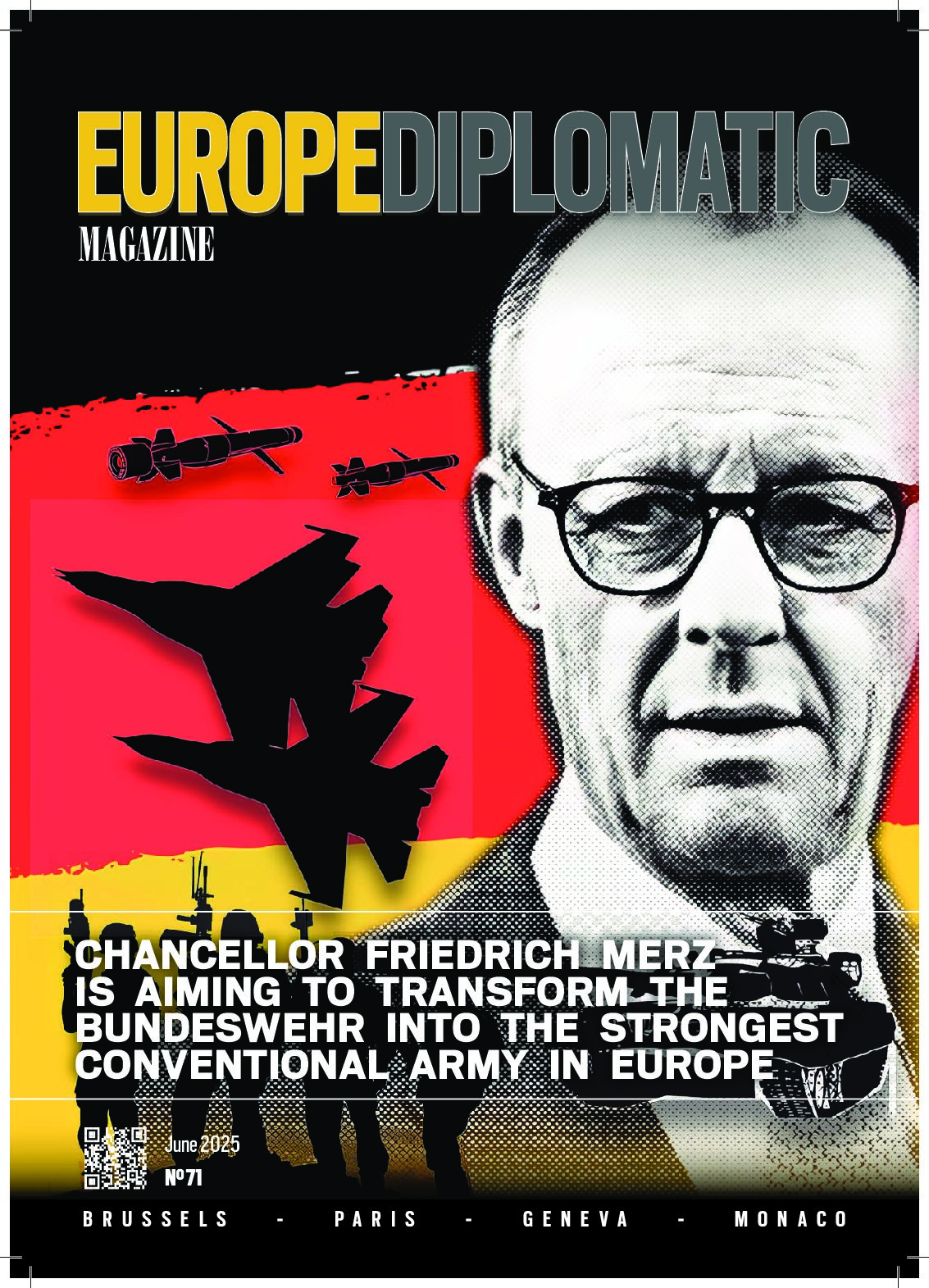We are far from being the first to tell the story of Recep Tayyip Erdogan ; in Turkey he has already been the subject of a fawning biopic.
‘Reis’ (The Chief) hit the screens in 2017 and stars famous actor Reha Beyoglu as Turkey’s strongman in his early life.
In the months preceding the release of the film, the teaser was broadcast on television almost daily and the Turkish press was full of the most positive and flattering reviews and commentaries.
On October 9, 2019, the world was holding its breath : it was waiting to see how far Turkey’s President, Recep Tayyip Erdogan would go.
He sent soldiers, tanks and jets across the border into Syria. The mission, code-named Operation Peace Spring was to create a safe zone, free of Kurdish militias.
He vehemently insisted that this was in no way an invasion, as Turkish and international media carried the president’s explicit message :
“Hey, European Union…get a hold of yourselves ! Look, I’m telling you again : if you describe our operation as an invasion again, we’ll take the easy road…we’ll open the doors and send you 3.6 million refugees !”
The invasion, sorry… the military action has been roundly condemned.
It’s all a far cry from a decade ago when Erdogan was feted by the West and could do no wrong.
In fact, through Erdogan, Turkey climbed onto the world stage and in those years, became an aspiration for many developing countries, especially in the Islamic world.

The beginnings
Recep Tayyip Erdogan, from humble roots was born on February 26, 1954, in Kasimpaşa, a poor district of Istanbul mostly populated by migrants from the Black Sea region, which in fact is where his own family came from.
This was during the Democratic Party’s (DP) reign and two years after Turkey joined NATO.
His father was a sea captain; he sailed ferries on the Bosphorus and it is said that at night, the young Erdogan would sneak onto cargo ships anchored in the bay to practice reciting the Koran. His parents were devout Muslims, their beliefs at odds with Turkey’s official, secular republic.
As a child, his very strict father enrolled him in the Istanbul Imam Hatip Lisesi, a religious vocational school where imams and preachers are trained. These schools were seen as something of a second-class option in the early days of the republic. If one had been to an Imam Hatip school, one couldn’t go to university, for example. But it was the choice for the poorer and more pious families.
So, in order to gain the right to a higher education, Erdogan took additional courses in a regular high school.
And it was during his teens that he began to play football; in fact he became obsessed with the game. He played football for 16 years as a semi-professional in various clubs and was even nicknamed “Imam Beckenbauer” by his teammates, after the famous German player.
His piety and dominant style of play were already very apparent.
Entering the political arena
But Erdogan proved to be better at politics.
In 1969, when he was fifteen years old, he began attending meetings and demonstrations of the MTTB (National Turkish Student’s Union) and was soon spotted by his superiors.
This was a time when leftist, nationalist and Islamist movements were beginning to rise and the Student’s Union became a focal point for meetings and debates. Armed clashes with the police and the army were frequent.
It was in this climate that a young engineer and independent deputy, Necmettin Erbakan founded the Islamic National Order Party (MNP) in 1970 and became Erdogan’s mentor.
Very rapidly, Erdogan began holding positions of responsibility within the party structures and Islamist organizations who also supported the MNP.
The party was active for only 15 months before it was shut down, following the 1971 military coup, on charges of conducting an anti-secular agenda.
However, in 1972, the military leadership allowed Erbakan to form another party, the National Salvation Party (MSP) which went on to win 48 seats in the 1973 general election and formed a coalition government with the CHP.
By this time, Erdogan had successfully passed his final exams at high school and was admitted to university. He enrolled at Marmara University’s Faculty of Economics and Administrative Sciences and obtained his graduation diploma in 1981.
Erdogan had been elected chairman of the Istanbul Youth Branch of the MSP in 1976, at the age of 22. He held this position until the party was yet again dissolved by another military coup in 1980.
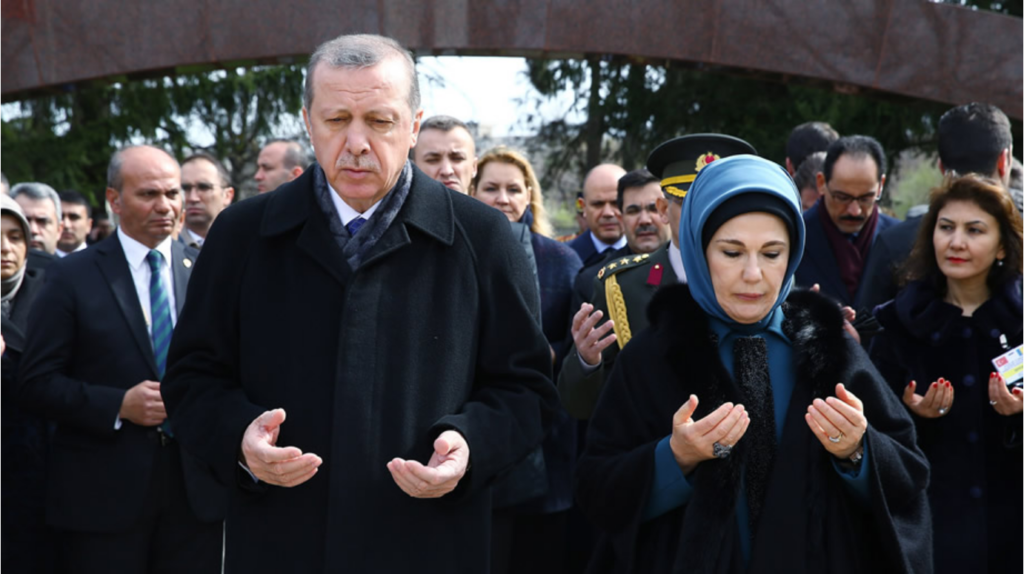
Falling in love and marriage
It was during a political rally in 1977, where Erdogan was reciting religious poems that he first met a 22 year-old girl, also from a modest background and who was very much impressed by his declamation.
They were introduced by a common friend and the attraction was immediate and mutual.
The couple married in 1978 and now have two sons and two daughters.
Erdogan and his wife Emine have been seen walking hand in hand on many occasions, even during official visits. This is quite unusual for a religious couple in Turkey.

Road to the mayoralty of Istanbul
The military coup of 1980 changed the country’s priorities; communism rather than Islamism was now perceived as the new enemy.
In order to counter this threat, the military government encouraged a moderate type of Islam that was under its strict control. It was formally known as the “Turkish-Islam synthesis” which was also used to control the increasing threat posed by the Kurdish liberation movement.
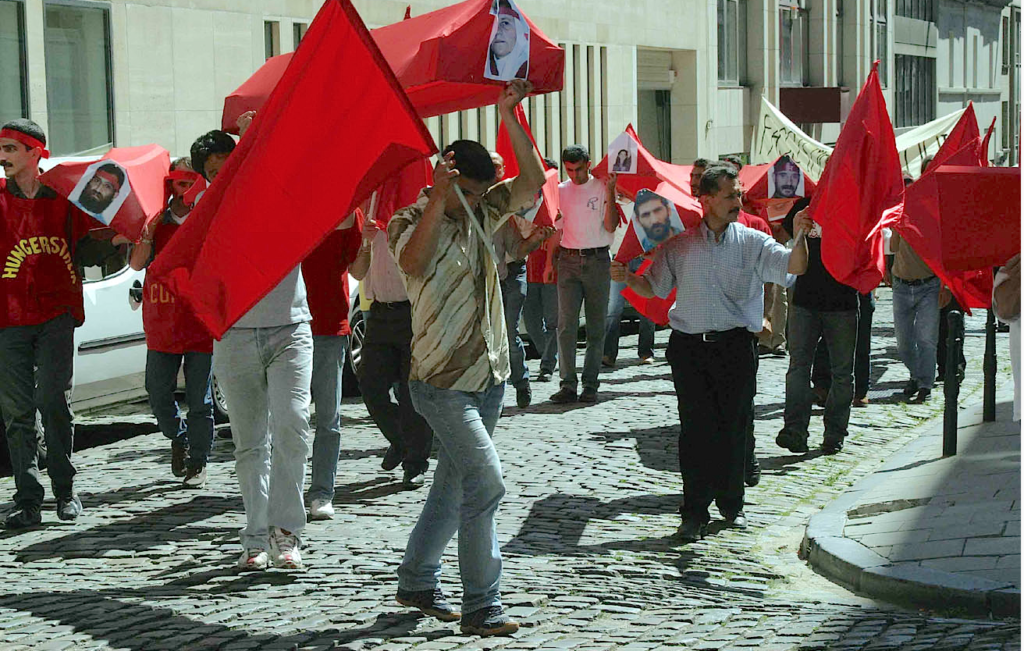
In the meantime, Washington had implemented a policy of Zbigniew Brzezinski – national security advisor to former US President Jimmy Carter – to contain the influence of the Soviet Union, by setting up moderate Islamic regimes in countries around its borders.
The 1980 military coup paved the way for Islamist parties in Turkey and indirectly, initiated Erdogan’s rise to power.
Shortly after the coup, Erdogan began his military service. However, he returned to politics in 1983, following the founding of a third Islamist political party by Necmettin Erbakan who now placed his trust in Erdogan’s ability to further the cause of the new Welfare Party (RP).
As expected, Erdogan rose rapidly through the ranks and in 1985 became a member of the Central Executive Board of the RP.
In 1989, his name was put forward as the RP candidate in the mayoral elections for the Beyoglu district of Istanbul. Although Erdogan had, for the first time, allowed female members of the RP to participate in these elections, he lost out to more experienced and high-profile politicians.
But his unexpectedly modern stance regarding the participation of women, significantly increased the RP’s votes.
Erdogan’s big moment came in 1994 with unexpected victory against well-known, secular politicians. Other than Istanbul, his party also won the mayoral elections in the capital Ankara and six other cities.
The following year, in the 1995 general election, the RP came on top and formed a coalition with the centre-right True Path Party (DYP). And Erdogan’s long-time mentor, Necmettin Erbakan became prime minister of Turkey.
Alarm bells began ringing in the military and secular establishments as Erdogan further raised concerns when he banned the sale of alcohol in cafes and restaurants. He proudly announced : “I am not just the mayor of this city but also its Imam.”
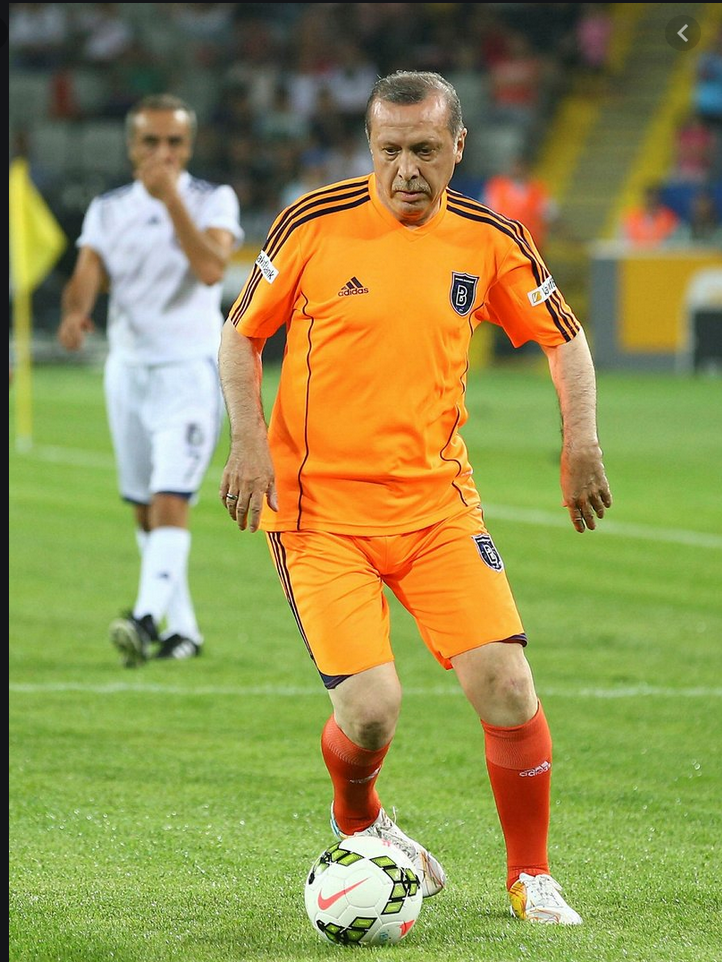
He also began organizing conferences in Istanbul where he invited major international Islamist figures who discussed and even recommended the reintroduction of the Caliphate in order to combat modern-day capitalism.
The fourth coup and the Prime-ministership
In February 1997, the RP-DYP coalition government was given an ultimatum by the military establishment to comply with its decision to restore the secular character of the regime.
This was rapidly followed by a decree outlawing the RP and thus forcing prime minister Erbakan to resign.
Although this time there was no bloodshed following the military action, there began a period of severe repression and harsh measures against Islamists.
As for Erdogan, he didn’t just want to be an ordinary mayor; he used that platform to build his image on the national stage. He began touring the country to give speeches and organize meetings and rallies.
In 1997 in the eastern city of Bitlis, he read out a poem in which were blended very nakedly, Islamist and nationalist slogans :
“The mosques are our barracks…the minarets our bayonets… the domes our helmets… the faithful our soldiers… Allahu akbar… Allahu akbar !”
He was tried and convicted for inciting religious hatred; he was sentenced to 10 months in prison and consequently was forced to resign in 1998, before completing his term as mayor of Istanbul.
But in the end, he served just 4 months…and he made them pay !
Ironically, this was the point where his image really went stratospheric.
On leaving jail, Erdogan banded together with other like-minded individuals who wanted him to become a founding member of the new Justice and Development Party (AKP).
Its goal was to bring more democracy to Turkey, more fundamental rights and freedoms and a better and more equitable economy.
Within one year, the AKP was in power and it has dominated Turkish politics since 2002. Although Erdogan was banned from politics due to his conviction in 1998, this obstacle was removed through a constitutional amendment, followed by victory in a by-election.
And so, on March 14, 2003, Recep Tayyip Erdogan became the new Prime Minister of Turkey.
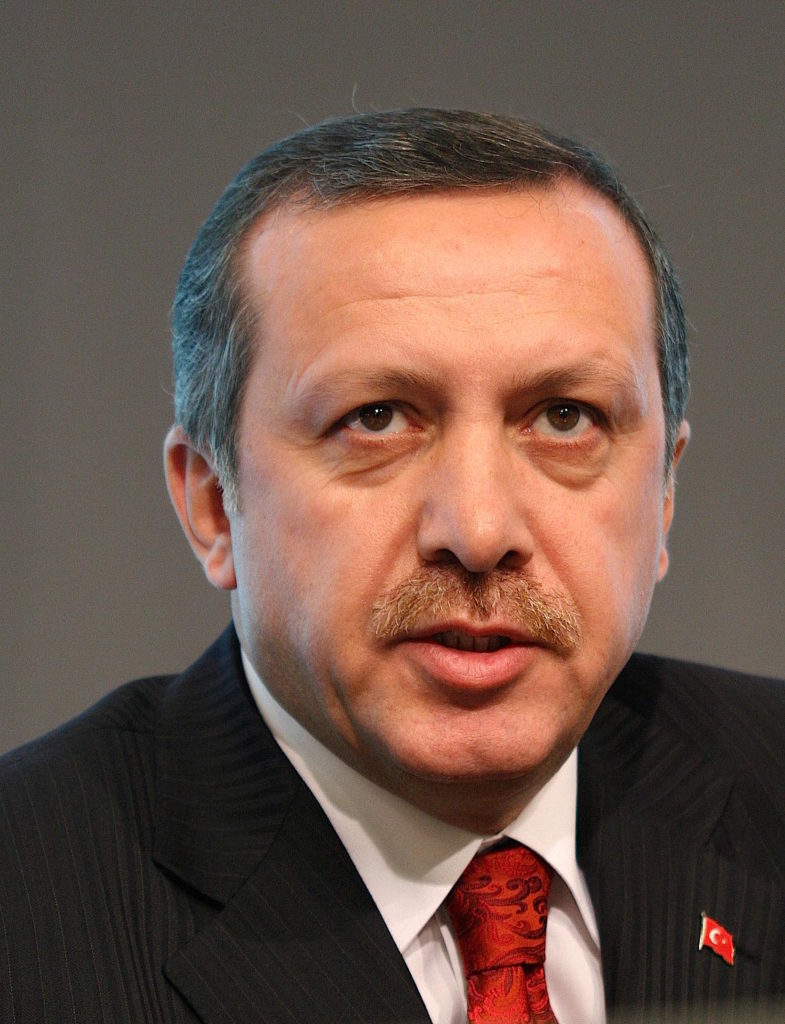
Trying to convince the West
The new government embarked on a series of huge infrastructure projects. New airports, roads and rail links were built, overseeing massive economic growth.
Erdogan was truly in power and in his element.
Power is one of the central concepts in explaining his character. That’s why he is a pragmatist rather than an ideologue; ideology is important for him insofar as it allows him to remain in power.
At one point, he declared : “We have destroyed all types of nationalism. Turkish nationalism, Kurdish nationalism; we’re above nationalism now”.
But ironically, he turned out to be the ultimate nationalist.
Another view of Erdogan was expressed by the US Ambassador to Turkey, Eric S. Edelman :
“Erdogan has traits which render him seriously vulnerable to miscalculating the political dynamic, especially in foreign affairs”.
In a 2004 cable to Washington revealed by Wikileaks, Edelman listed what he saw as Erdogan’s flaws : “First, overbearing pride. Second, unbridled ambition, stemming from a belief God has anointed him to lead Turkey”.
But it is the following remarks that make it obvious why the US wanted to keep this cable confidential.
“Third, an authoritarian loner streak which prevents growth of a circle of strong and skillful advisers. This streak also makes him exceptionally thin-skinned !
Fourth, an overweening desire to stay in power which, despite his macho image, renders him fearful and prone to temporizing even at moments which call for swift and resolute decisions. And finally, a distrust of women which manifests itself not only in occasional, harsh public comments, but also in his unwillingness to give women any meaningful decision-making authority”.
Be that as it may, Erdogan tried very hard to convince the West that he had no hostile feelings towards them.
With the Turkish people, he was punchy. His rallies became something of a phenomenon.
One cannot underestimate just how much charisma and how big a stage presence Erdogan has. His rallies are Turkey’s rock concerts !
He has the ability to move the masses with the tone of his voice and it is said that women find him physically attractive. According to Yaşar Yakiş, a former Foreign Minister and founding member of the AKP, there were even women who volunteered to become his concubines, despite Turkey’s conservative society.

But for some, the attraction was now fading. Turkey’s economy had slowed down, inflation and unemployment had risen, and so had discontent.
In 2013, a protest over a construction project on Gezi Park, a green area of Istanbul mushroomed into the biggest demonstrations Turkey had seen in more than a decade.
These were the first mass street acts of opposition to Erdogan, and they really knocked him off-balance.
That was followed by a big corruption scandal in which the sons of three cabinet ministers were arrested by the police.
Audio of Erdogan allegedly telling his own son to conceal large amounts of money were posted onto You Tube and the government responded by trying to ban access to social media sites.
Erdogan then launched a corruption probe against members of his inner circle. In the course of the investigations some 350 police officers were dismissed.
Erdogan also blamed his former close collaborator, Fethullah Gülen for being behind the unrest. Gülen who is a cleric, is living in exile in the United States but has a very strong power base in Turkey.
Becoming president
Despite all the difficulties, Erdogan kept winning.
In 2014, twenty years after first becoming mayor of Istanbul, he acceded to the largely ceremonial post of president. This was the first time that the president was elected by the people instead of being nominated by parliament.
He immediately set about changing the constitution, to further expand his powers.
However, in 2015 the opposition, which was composed of a coalition of parties including the Kurdish HDP, attempted to counter Erdogan’s plans for modifying the constitution in his favour.
Erdogan’s political party, the AKP did not have a parliamentary majority at the time. But as in the past, the far-right, ultra-conservative MHP (Nationalist Movement Party) came to Erdogan’s rescue by preventing the opposition from forming a viable governing coalition.
And so, in November 2015, the AKP won back its parliamentary majority following a snap election.
The failed coup
On July 15, 2016, Erdogan’s enemies came for him. Large sections of the military attempted a coup.
In Istanbul, there were tanks on the streets, in Ankara fighter jets attacked parliament and in a resort on the Aegean coast, plotters nearly captured Erdogan.
The president, calling news network CNN Turk live from his hotel room, insisted he was the commander-in-chief and urged the Turkish people to take to the streets.
And they did. Within a day, he had wrested back control, thanks to the support of nationalist elements in the army who saw the attempt as a Western plot.
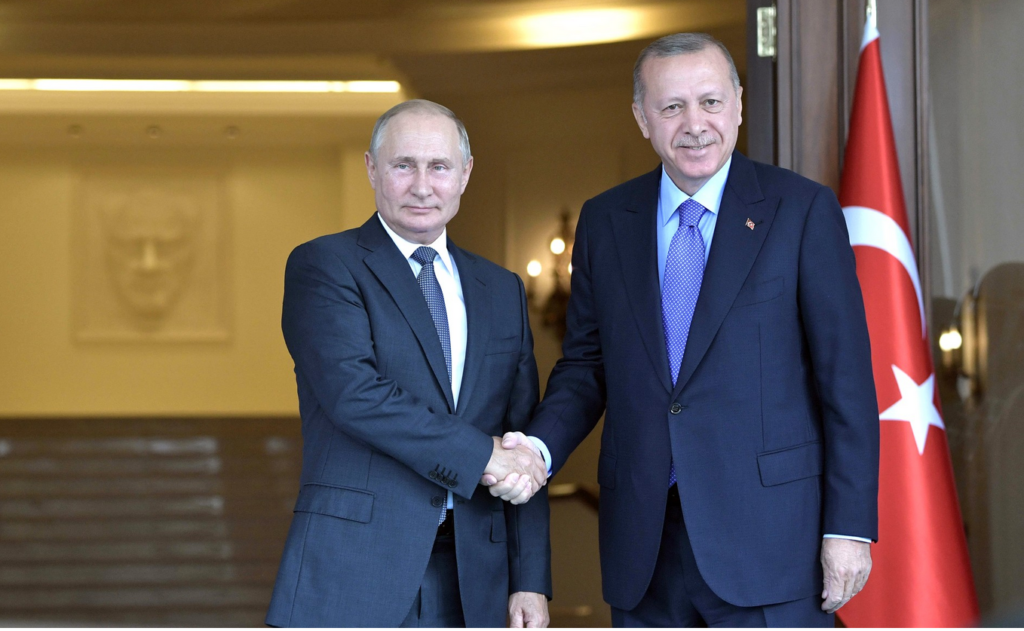
Erdogan also reportedly received support from Moscow and some political analysts speculate that this was in fact, the beginning of his friendship with Russian president, Vladimir Putin.
Whatever the case, the fighting had killed over 250 people, including one of his closest friends. Later, as he gave the funeral address, the president broke down in tears at the grave site.
Erdogan again blamed Fethullah Gülen for instigating the vast conspiracy and demanded his extradition from the United States, to no avail.
As the expression goes: ‘When you come at the king, you best not miss’.
Erdogan declared a state of emergency and launched a crack-down on opponents, real and perceived.
From that point on, tens of thousands of people were arrested, and countless others lost their jobs. There were crack-downs on academia and on the media, with dozens of newspapers closed.
In April 2017, a controversial referendum aimed at reforming the constitution was held.
Amid claims of irregularities from the opposition, Erdogan obtained the abolition of the post of prime minister by a narrow margin, as well as the extension of his presidential executive powers.
In the June 2018 presidential election, Erdogan won a majority of the vote for his second term in office, thanks yet again to the support of the MHP. The opposition again contested the results and the fairness of the process, but to no avail.
Erdogan had succeeded in changing Turkey’s parliamentary form of government into his preferred presidential one.
Losing Istanbul, losing Turkey
There is a classic way that authoritarian leaders go and Erdogan followed that path exactly.
The more power they get, the more enemies they make and the more paranoid they become.
As a result, they begin purging their inner circle of the people who might have wanted to stand up to them.
With his popularity apparently waning, inflation and unemployment rates rising, his AKP party also lost key cities like Ankara, Istanbul, Izmir and Adana in local elections in 2019.
Losing Istanbul to the opposition was particularly painful to Erdogan who had governed that city for over 4 years.
“Losing Istanbul is like losing Turkey” he remarked when the election results came in.
The AKP proceeded to contest the results, but a re-run of the election only served to reinforce the victory of Ekrem Imamoglu, the CHP candidate who went on to become the new star of Turkish politics.
What’s more, Erdogan now has to deal with the challenge from his old colleague, Ahmed Davutoglu, who was forced to resign as Prime Minister by him in 2016 and who, along with former Economy Minister Ali Babacan, is planning to launch a new breakaway party.
It should perhaps be emphasized that Abdullah Gul, former president and once close friend of Erdogan is backing the formation of this new party.
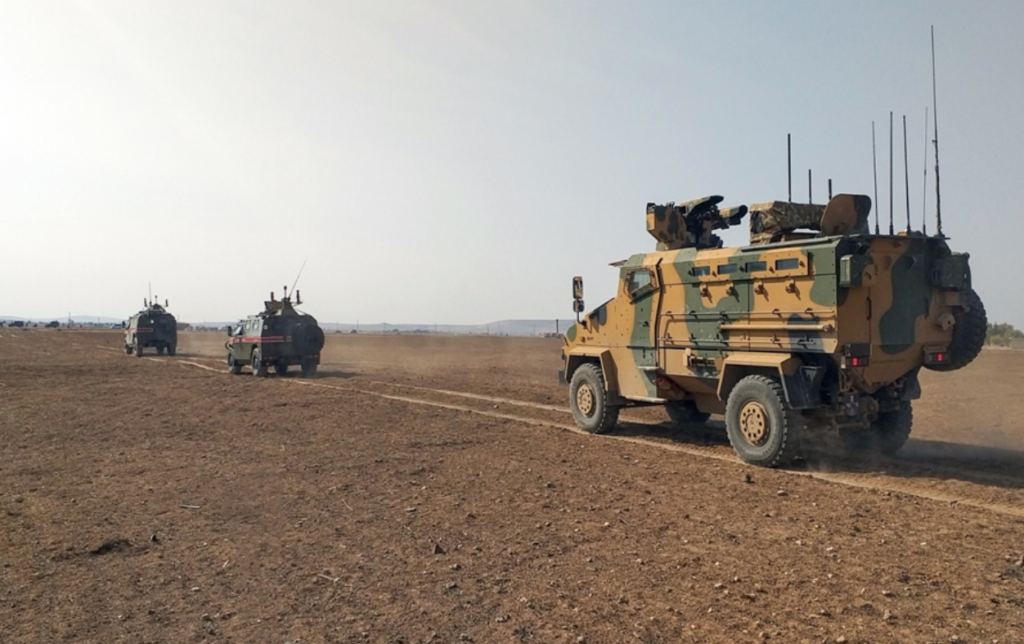
We now have the context for Turkey’s controversial military offensive in Syria.
Designed, according to Erdogan, to create a buffer along a frontier stretching hundreds of miles, driving Kurdish militias out and replacing them with 3 million Syrian refugees currently living in Turkey.
World leaders may be appalled but it’s a policy popular with Turks back home.
Erdogan is an ultimate pragmatist and in that sense, the ultimate populist. His skill is reading the mood of his country and then responding to it.
Erdogan once said : “Democracy is like a street car; you ride it until you reach your destination”.
But is he in danger of running out of road ?
There have been many times when people have predicted the beginning of the end for Erdogan but he has always managed to survive and even strengthen his hold on power.
He is undoubtedly the master tactician when it comes to Turkish politics and the future of his country.
He remains the dominant personality, dictates the agenda and defines the contours of Turkey’s political debates.
Hossein Sadre
